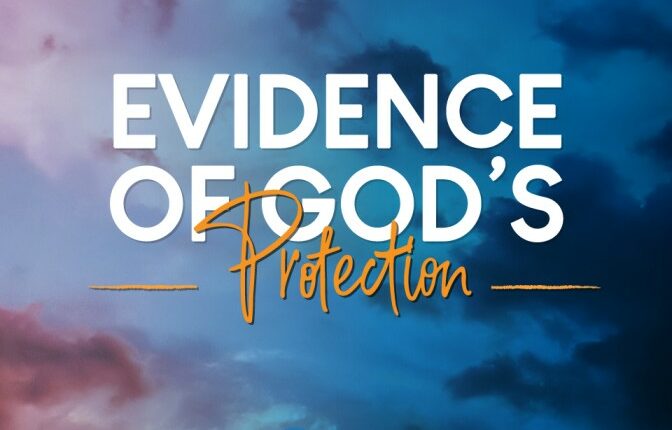“When a man becomes a Christian, he becomes industrious, trustworthy and prosperous. Now, if that man when he gets all he can and saves all he can does not give all he can, I have more hope for Judas Iscariot than for that man!”
John Wesley
“But woe to you Pharisees! For you tithe mint and rue and herbs of all kinds, and neglect justice and the love of God; it is these you ought to have practiced, without neglecting the others.
Luke 11:42 NRSV
Have you ever heard about the heave offering?
You can find the term “heave offering” several times in the Old Testament specifically. It’s a way of presenting one’s offering to the Lord. It usually appears together with burnt offerings, grain offerings, and the offering of the firstborn flocks. The Mosaic Law requires the people of God to give the heave-offering.
Heaving is an action. It pertains to an upward movement. An offering is distinguished as a heave offering because there is a generic movement of lifting or heaving the sacrifice toward the altar. It is also referred to as separating a portion of the sacrifice from the rest. The “heaved” up portion was set apart for the consumption of the priests (Lev. 7:34) because God takes care of His ministers. Here’s a picture of how the process of the heave offering is done:
27 And thou shalt sanctify the breast of the wave offering, and the shoulder of the heave offering, which is waved, and which is heaved up, of the ram of the consecration, even of that which is for Aaron, and of that which is for his sons:
28 And it shall be Aaron’s and his sons’ by a statute for ever from the children of Israel: for it is an heave offering: and it shall be an heave offering from the children of Israel of the sacrifice of their peace offerings, even their heave offering unto the Lord. (Exodus 29:27-28, King James Version)
The distinction of târumah
Târumah is a heave offering; it is a contribution of the believer to the ministry of God.
The Hebrew term “Târumah” (תְּרוּמָה [târuwmah or târumah), pronounced as ter·oo·maw is translated as “offering” appears 51 times, “oblation” 19 times, “heave” four times, “gifts” once, and “offered” once. There is an interesting correlation between how this single word is translated into different Scripture and it gives us a hint as to how important this concept is to the Lord. Târumah is a heave offering; it is a contribution of the believer to the ministry of God.
Târumah serves as a call for the Israelites to bring to God what we understand as “gifts”. In Scripture, we read: “The Lord said to Moses: Tell the Israelites to take for me an offering; from all whose hearts prompt them to give you shall receive the offering for me” (Exodus 25:1-2). In The Torah: A Modern Commentary, it reads like this: “you shall accept gifts for Me from every person whose heart is so moved”. God uses His people to bless His ministers. It is because of God’s grace and will that the members of the Body of Christ bless His front liners in the ministry. It’s not because of the church member’s own generosity and wealth.
It is because God touches one’s heart to be generous and provides for him that he is able to give the Târumah offering.
A member of the church cannot say, “I am so generous to my pastor, which is why I am giving him my Târumah offering, on top of my tithes.” It is because God touches one’s heart to be generous and provides for him that he is able to give the Târumah offering. Otherwise, they cannot exhibit this generosity. This generosity comes from the Lordship the believer places himself under, in order to obey the commands of the Lord.
In the passage, after God enumerated the precious metals, stones, and materials that would constitute such gifts, God reveals the purpose of this command.[i] God said, “And have them make me a sanctuary, so that I may dwell among them” (Exo. 25:8). Do you want the Lord to truly dwell among you in your church? Then, you need to obey and bring in the Târumah offering.
People need symbols. They cannot fully grasp the concept of God because He is intangible and invisible. As human beings, we are used to understanding concrete things more effectively than abstract concepts. As a quest to make this human-divine partnership more tangible, the Bible presents the idea of making a sanctuary for God. The idea of gift-giving or donating to God is rendered so that human beings understand how they can express their worship and loyalty to the Lord.
The idea of gift-giving or donating to God is rendered so that human beings understand how they can express their worship and loyalty to the Lord.
Notice the words the author used in the passage from Exodus 25. The Scripture used “to take” instead of “to bring” in “Tell the Israelites to take for me an offering.”
Hold that thought for a second, and look at it from another angle. If we linguistically study this word, the verb meaning of “Târumah” is “to elevate.” Does this root meaning add anything more to our understanding of what’s going on here? Have you ever seen something elevate? If you’ve ridden an elevator before, it goes from the first floor to the second floor. It leaves the first floor and arrives on the second floor. An elevator that works cannot be both on the first floor and the second floor at the same time.
Going back, why did the verse say, “To take for me” The Bible talks about taking an offering, but why did it not directly say to bring your donations to God? A linguistic investigation shows us insights into human ways of thinking. There is a “Take and give” concept here.[i] In order to give something, it must be taken from ourselves. Said in another way, true gift-giving is about giving something up.
True gift-giving is about giving something up.
The Târumah is a heart offering (see Exo 25:2) that can be elevated.
The elevation here refers to the spiritual expansion because of the elevated nature of the gift. Throughout the Pentateuch, Moses is described as “going up” to commune with God. This suggests that through the gifts that the people of God give to the ministers, then all Israelites are able to ascend toward the Divine. They need to let go of something to get somewhere. As in the elevator illustration, they need to let go of being in the first floor in order to reach higher floors. In the context of the heave offering, it is letting go of a tangible object, in order to experience an intangible God.
Your weekly dose of prophetic wisdom and anointing awaits you. Join our LIVE Conference Call!
1) Call 515-604-9266
2) Go to startmeeting.com, and use the login: BishopJordan















